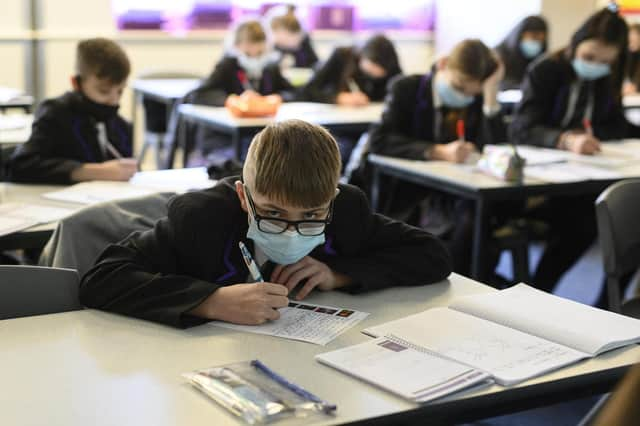Childhoods have been 'blighted' by Covid, Scottish inquiry told


Women and children were among the worst affected by the Covid pandemic and many youngsters saw their childhood “blighted”, an inquiry has heard.
On day two of the Scottish Covid Inquiry on Wednesday, organisations including Long Covid Kids Scotland and Scottish Women’s Rights Organisations – an umbrella term for a number of bodies – gave opening statements to chairman Lord Brailsford.
Advertisement
Hide AdAdvertisement
Hide AdAndrew Webster KC, representing Long Covid Kids Scotland, told the panel of the hardships faced by children with long Covid.
He said: “The children of Scotland should be able to thrive and look forward to a positive future.
“Long Covid the long-term illness caused by Covid-19 has blighted that prospect for too many. For too many, long Covid presents a seemingly insurmountable obstacle to an engaged, fulfilling and productive life.
“The inquiry is embarked upon its listening project, let’s be heard.
“In an adult world, the voice of children is too often ignored, disregarded or belittled.
“I ask all of us in this room here today to pause and think back – did we hear the voice of children in the decision making on masking, school mitigation, examinations or immunisation?
“Or is our recollection that children were simply told how it was going to be?
“For reasons I find unfathomable, we have been precluded by the inquiry from allowing the voice of a child to be heard in these opening statements.”
Advertisement
Hide AdAdvertisement
Hide AdMr Webster then read a statement from an anonymous child suffering from long Covid symptoms.
Quoting the child, he said: “Many months ago, we all became ill with coronavirus, and very soon we became very ill, some of us became seriously ill and had to stay in hospital.
“Our symptoms looked a bit different to the ones that grown-ups seemed to get and our parents didn’t always know what was wrong with us straight away.
“Coronavirus doesn’t only affect children like you, many of our parents got it too, so we had to stay at home and try to look after each other, but many of us got worse and needed extra help from doctors.
“Our parents were often scared. It seems like a long time ago that we felt well, and could do some of the fun things we like to do.
“We’re still at home and we’re still unwell. Many of us are still in bed a lot of the time. It can be boring, annoying, frustrating and tiring and we miss our friends. We miss feeling well.
“Our parents are working together to get us some help and that’s why we’re telling you our story.
“We want to feel better again, and when we asked when we will feel better, nobody can tell us when that might be. It’s making us sad.”
Advertisement
Hide AdAdvertisement
Hide AdHe concluded by asking if the long-term effects of long Covid in children are considered by the Scottish Government.
Deirdre Domingo, of Scottish Women’s Rights Organisations, told the inquiry that the idea that the pandemic affected everyone equally should be “firmly dispelled”.
She said women, particularly from black and minority ethnicities, were far more affected when compared to the wider population.
Ms Domingo said a key area of concern was the rise in domestic violence, sexual abuse and rape.
She said stay at home measures “overlooked that for many people, home was not the safest place to be”.
Claire Mitchell KC, representing Scottish Covid Bereaved, told the inquiry that the hearing presents an opportunity for “real change and accountability”.
The inquiry continues.